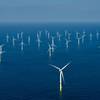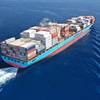In an age of increased environmental awareness, new commitments to reducing emissions and pollution in the air, Crowley has invested in engine modifications on its 10 tugboats dedicated to the Puerto Rico/Caribbean liner service and on its four tugs chartered to Trailer Bridge for their Puerto Rico barge service.
Crowley makes four to five trips per week between the United States and Puerto Rico, which provide ample opportunity to test and perfect engine modifications, which have led to lower exhaust emissions and increased performance. Exhaust emissions take on a number of forms including visible smoke, particulate matter and nitrogen oxides (NOx). Crowley is working to reducing all three while achieving heightened performance with decreased fuel consumption.
Through a series of engineering upgrades, Crowley has partnered with General Electric, Rolls Royce, Marine Systems and Interstate Diesel to reduce exhaust, cut engine lubricating oil consumption and save fuel.
In addition to using low sulfur diesel fuel, Crowley has installed ECOTIP fuel injectors in all of the tugs in its Puerto Rico service, which has helped reduce fuel consumption and the amount of particulate matter by 44 percent. Additionally, the clarity, or opacity of stack emissions has improved by 75 percent.
Also contributing to improved fuel efficiency, cleaner burning engines and reduced stack emissions are new fiberglass air filters with a pleated paper design. These filters provide less restriction of airflow into the engine and better air cleaning prior to entering the tug's turbocharger thereby maintaining efficiency.
Additionally, the tugs have special four-pass aftercoolers instead of traditional two-pass coolers, ensuring that the air temperature is lowered and density is increased as the air enters the engine. The cooler, denser air flowing into the engine allows for more complete combustion and increased fuel efficiency while maximizing the engine's power. Vent modifications and stronger vent fans in the engine room keep the air pressure up and the temperature down. The further cooling of this ambient air temperature again increases efficiency and reduces fuel consumption and stack emissions.
New extended life, emissions-reducing power packs have been installed for testing purposes in some of the tugs in the fleet. Also proving their worth are custom designed piston rings, which require less oil for operation.
The final piece of Crowley's move towards more efficient, environmentally friendly tugs is the development and installation of new generation Rolls Royce propellers. The new generation work wheels provide state of the art hydrodynamic design, which significantly improves cavitation, performance and overall efficiency. The combination of these different modifications have all worked together to decrease oil and fuel consumption while not compromising efficiency and speed, thus allowing Crowley to maintain the service schedule and sailing frequency to which the people of Puerto Rico have become accustomed.
A Commitment to Reduce Fuel Consumption and Lower Emissions on Land Too
On land, to minimize emissions in its trucking operations, Crowley has joined SmartWay Transport Partnership. This voluntary program, which is affiliated with the US Environmental Protection Agency, addresses energy efficiency in the transportation industry. Crowley has committed to develop strategies that will reduce idle time and improve miles per gallon in its trucking operation and in its trucking partnerships.
Crowley has a long history of environmental protection. A Crowley Safety in Towing Handbook published in 1970, twenty years before the Oil Pollution Act of 1990, contains operational procedures to prevent spills that many years later became law. This early interest in keeping our harbors and oceans clean has developed into a strong company culture of environmental stewardship.
Recent examples are Crowley's certification to the international standard ISO 14001 Environmental Management System; certification of the 650-3, a new 185,000-barrel petroleum barge, by Lloyds Register Group under its Green Passport program; and special recognition by several prestigious government organizations of Crowley's environmental stewardship - including the U.S. Coast Guard's William Benkert award for environmental excellence, Washington Department of Ecology Exceptional Compliance Program, and the Pacific States / British Columbia Oil Spill Task Force Legacy Award.
Subscribe for
Maritime Reporter E-News
Maritime Reporter E-News is the maritime industry's largest circulation and most authoritative ENews Service, delivered to your Email five times per week










